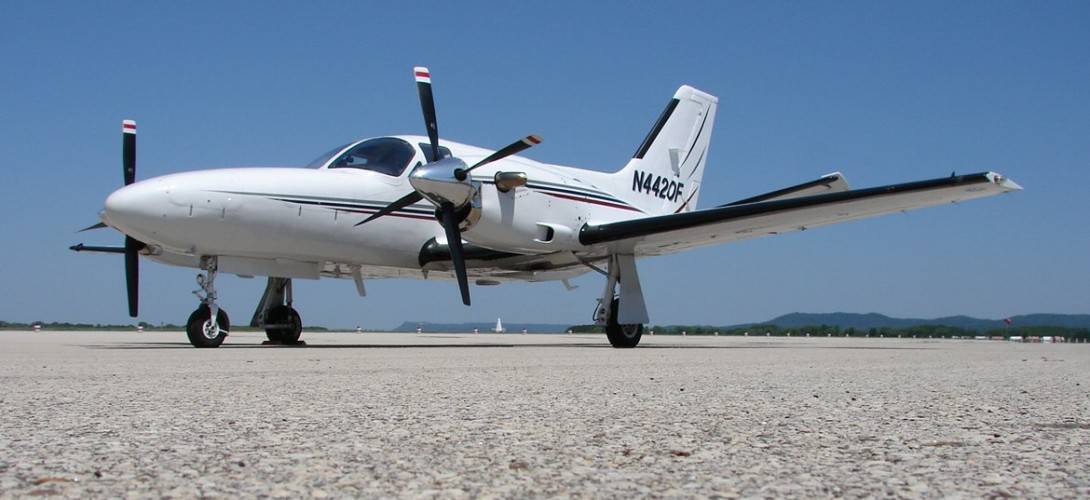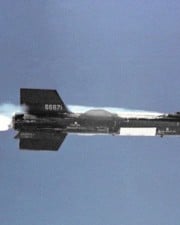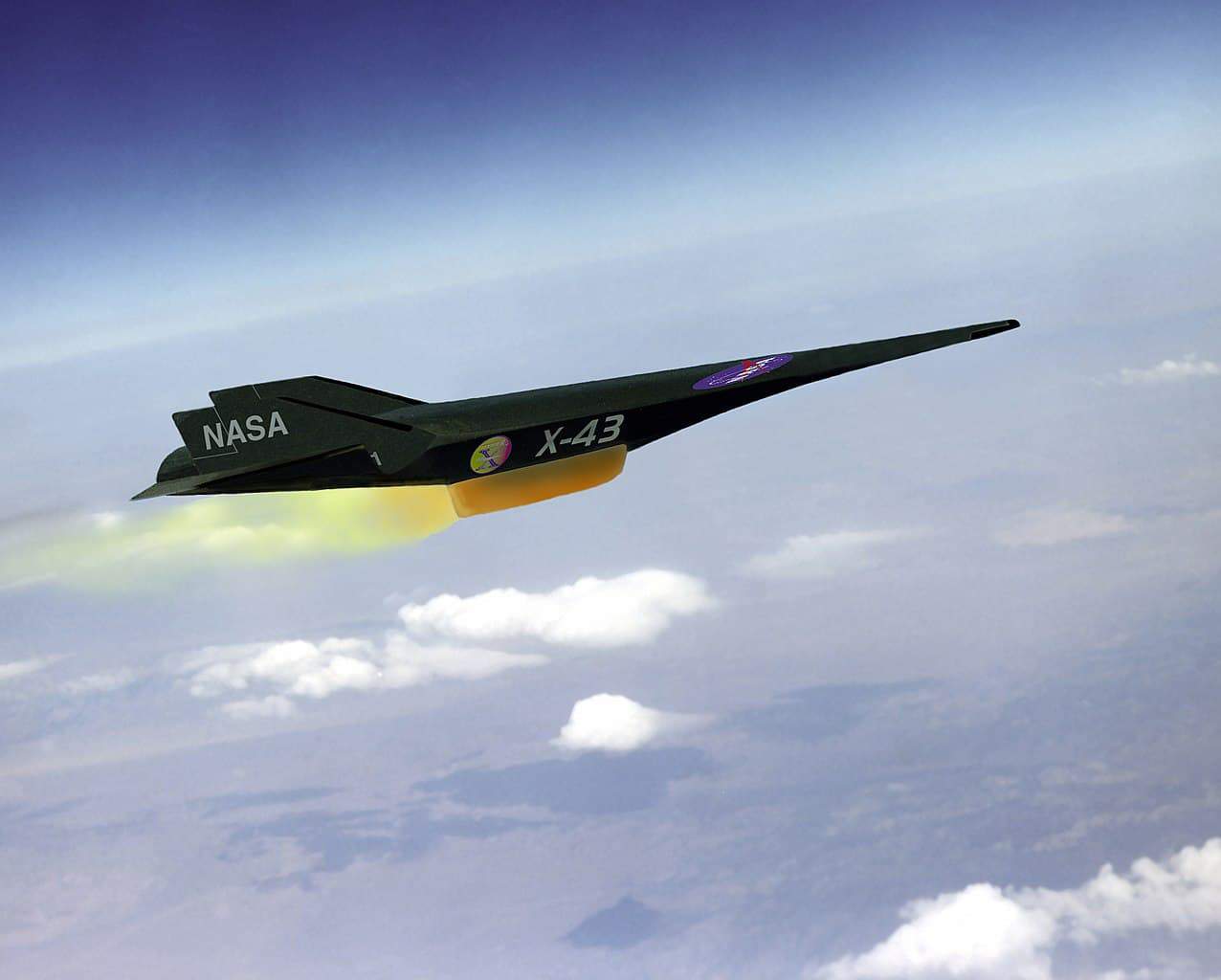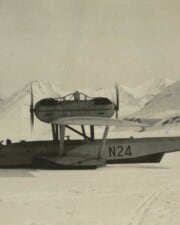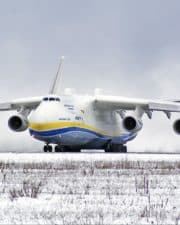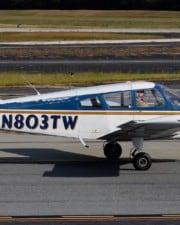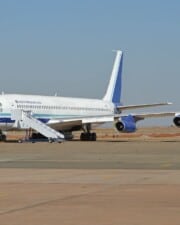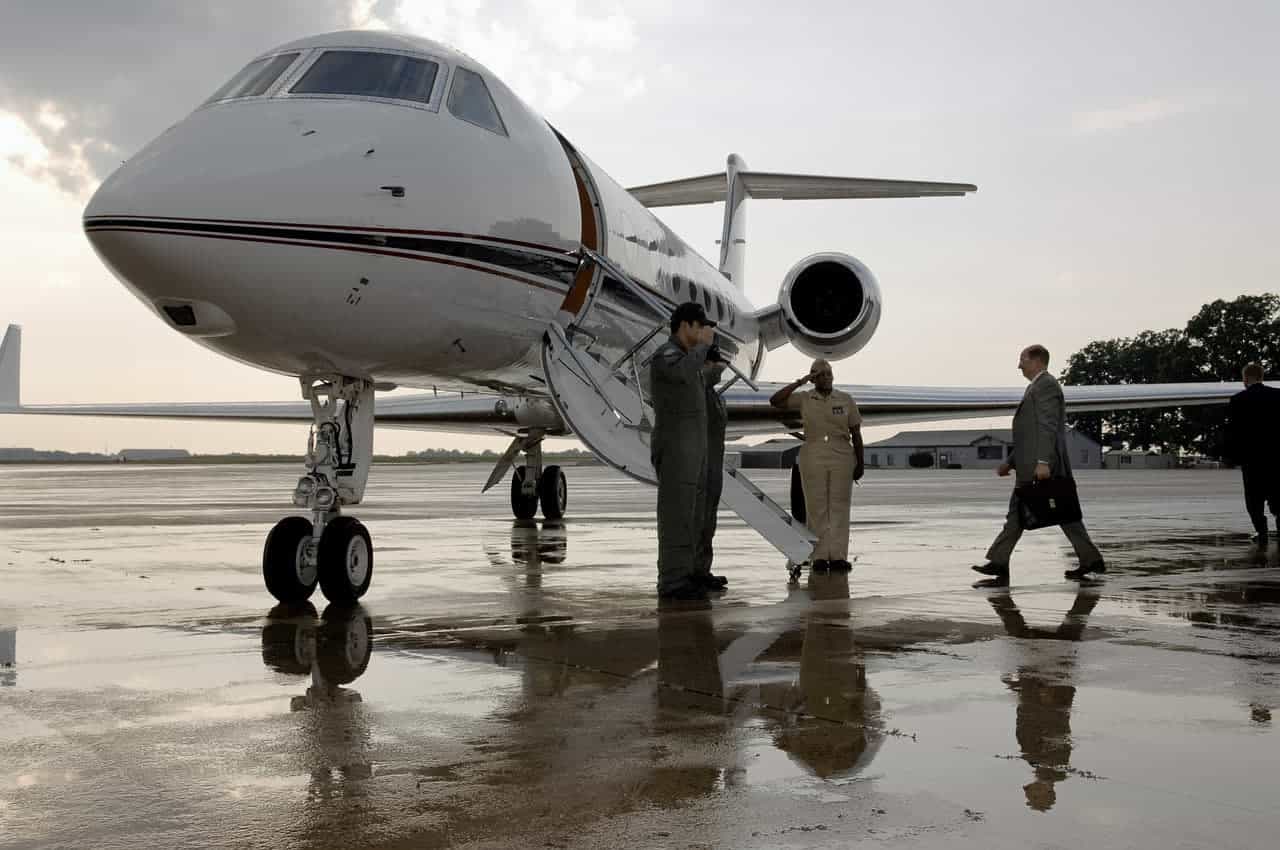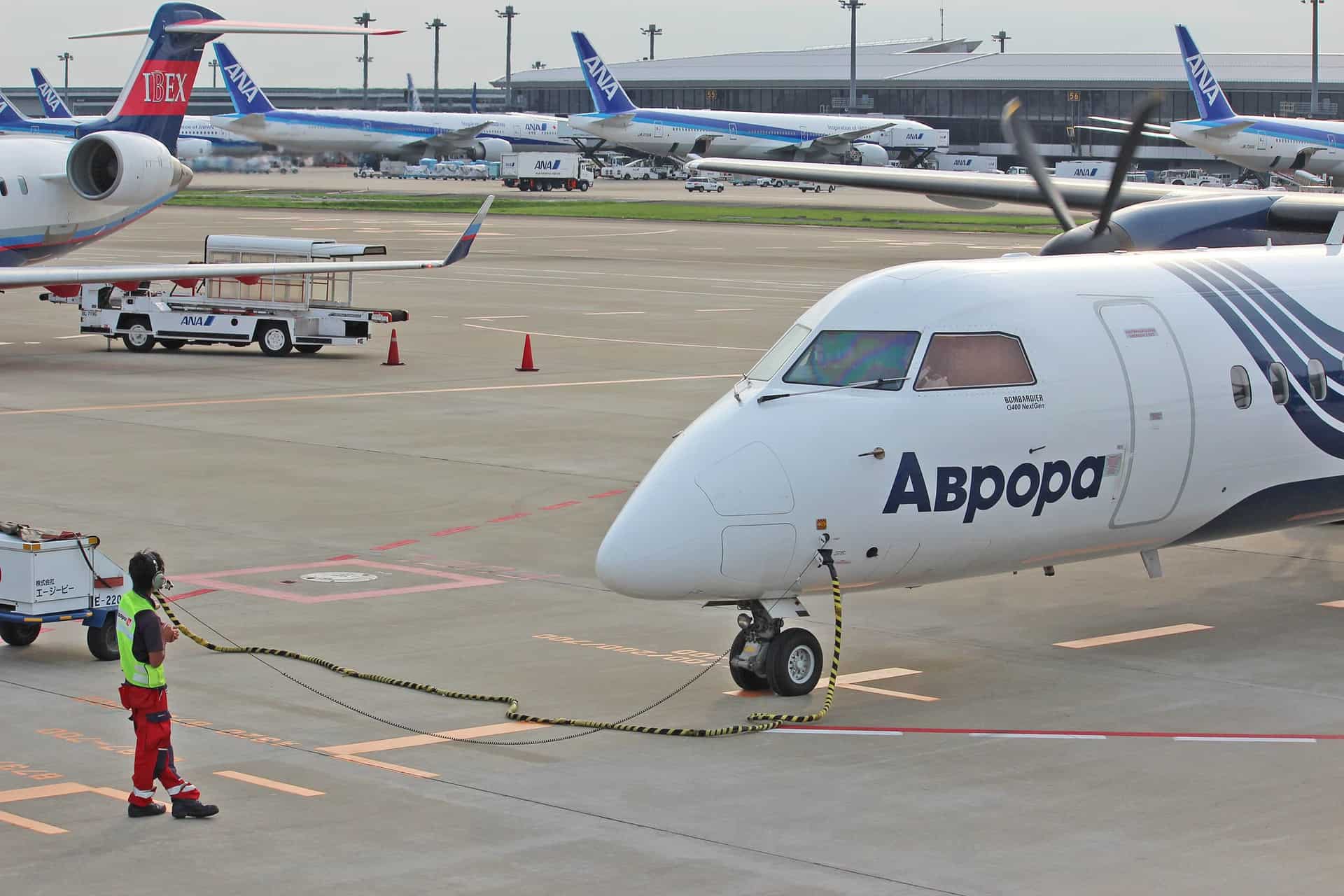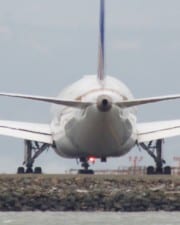They are and have been for many years the pinnacle of private aviation, as well as trusty people movers in the sky. Twin turboprops are classy, reliable, and most importantly, fast. All while being way more economical than their modern day competitor, the jet plane.
Twin turboprop aircraft are easily recognizable by their unique design which features, as the name implies, two propellers, typically flanking the fuselage of the aircraft. With their easy to recognize nature, it should come as no surprise that many twin turboprops also come with another distinguishing feature; blistering speed.
The fascinating world of aircraft is made even more interesting and diverse by twin-turboprop aircraft. These planes turn heads all around below them and are used in applications from commercial flights to comfortable private transportation.
How fast do twin engine turboprops fly? The planes that made it to this list of fastest twin prop planes, are capable of reaching top speeds of between 268 knots (309mph) and 402 knots (462 mph). Not all twins will be able to reach these speeds, although it’s interesting that some single engine turboprop planes can achieve even faster speeds than some twin turboprops.
Despite all of the different variants of twin turboprops, one trait can be measured across the board consistently: speed. Fast aircraft are impressive and fun to watch, so here are the fastest twin turboprop planes in the world.
Table of Contents
- 10. Cessna 425 Corsair (309 mph)
- 9. Saab 340 (312 mph)
- 8. ATR 72 (322 mph)
- 7. Swearingen Merlin III (261 mph)
- 6. Cessna 441 Conquest II (261 mph)
- 5. Beechcraft Super King Air 350i (359 mph)
- 4. Beechcraft Starship 2000A (385 mph)
- 3. Bombardier DHC-8 Q400 (414 mph)
- 2. Piper Cheyenne III 400 LS (414 mph)
- 1. Piaggio P.180 Avanti Evo (462 mph)
10. Cessna 425 Corsair (309 mph)
Top speed: 268 knots/309 mph
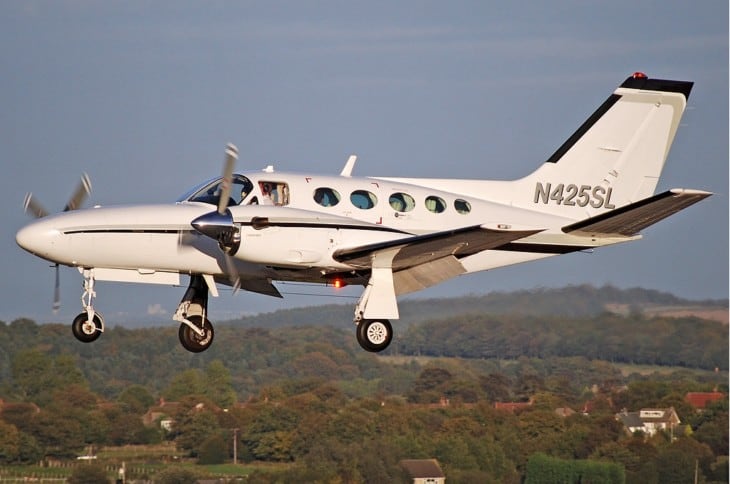
The Cessna 425 Corsair was a utility turboprop used primarily for private use. Built in the 1980s, this reportedly comfortable airplane was capable of seating two crew and four to six passengers. It was known by those familiar with the craft for its large windows and comfortable seating.
The Corsair was an early, utilitarian example of a turboprop aircraft, but it paved the way for improvements into planes seen further up this list, including the Cessna 441 Conquest II. The Corsair platform served as a springboard into better, more marketable turboprops from Cessna.
Despite its foundational role in Cessna’s turboprop development, this plane was no slow-poke. To complete its long list of selling points at the time was the zippy 268 knot (309 mph) top speed this plane boasted. There can be no doubt that this plane could whisk its VIP passengers around in speed and style.
9. Saab 340 (312 mph)
Top speed: 271 knots/312 mph
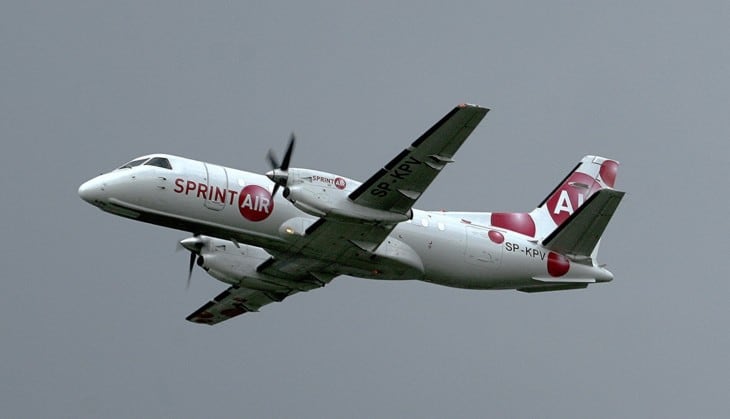
Rapidly demonstrating the wide array of applications for twin turboprops, the Saab 340 is a commercial aircraft employed by multiple local and regional airlines around the world. These aircraft blend higher passenger capacity with the fuel savings of a turboprop over a jet engine, making them a popular choice.
Assuming you make it onto the plane and take off without delay, you will quickly be delighted to find that this modest size commuter aircraft is capable of cruising along at a modest 271 knots (312 mph). In addition to the passenger variants, there are cargo variants too.
8. ATR 72 (322 mph)
Top speed: 280 knots/322 mph
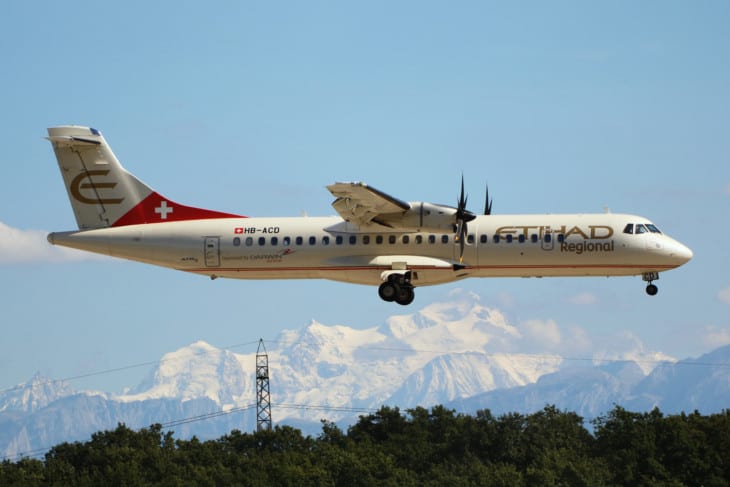
The ATR 72 carries on the torch of bigger turboprops, being larger even than the Saab 340. Just like the Saab however, it is also a short-haul regional passenger aircraft, which was also made available in cargo variants. Capable of seating between 72 and 78 passengers, this plane is big.
All that size doesn’t slow this plane down though. The ATR 72 is capable of achieving 280 knots (322 mph) when cruising. It’s fair to say this plane may make your short-haul flight a little shorter still. Interestingly, FedEx is one of the biggest cargo operators of ATR 72’s.
7. Swearingen Merlin III (261 mph)
Top speed: 300 knots/261 mph
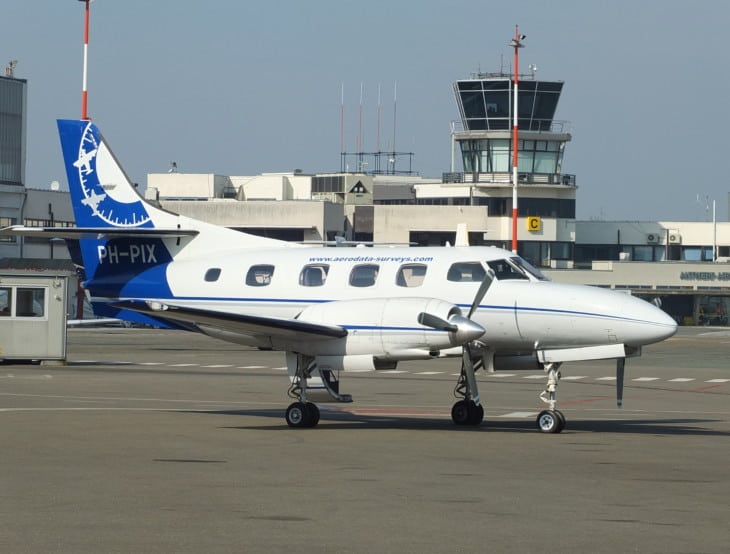
The Swearingen Merlin III may have quite the name, but that’s okay when you look at its long and widespread use across the globe by both civilians and militaries. This light utility plane could seat 2 crew and up to 9 passengers at one time.
The Merlin was created as a business aircraft using the lessons learned from previous generations of aircraft. This small, light aircraft could fill a variety of purposes with its relative large passenger capacity. As such, it has earned a place with various governments as well.
The Merlin III was the final generation of Swearingen’s Merlin line, and the years of refinement and careful observation paid off in at least one way, and that’s the speed this plane can achieve. When cruising, the Merlin II can reach up to 300 knots (345 mph). This light airplane is certainly fast.
6. Cessna 441 Conquest II (261 mph)
Top speed: 300 knots/261 mph
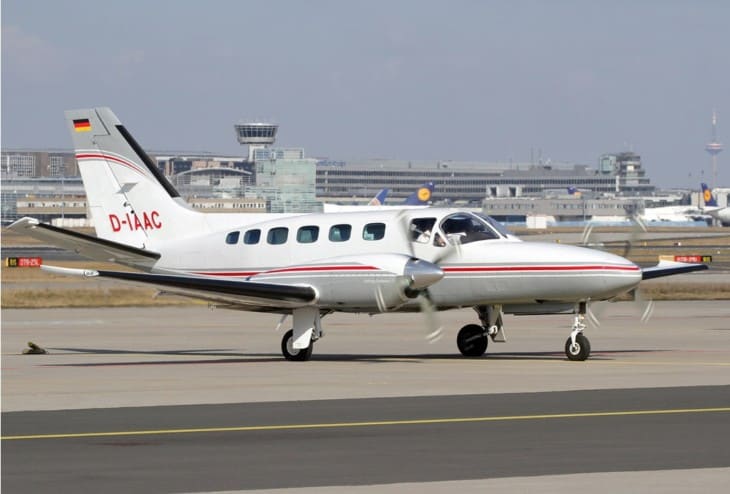
Technically tying with the Merlin III, the Cessna 441 Conquest II is not only a fast twin-turboprop aircraft but also a small piece of aviation history. This airplane was the first turboprop aircraft developed by Cessna, and one look at its specs will show they started out of the gate strong.
The Conquest II was an extremely competitive aircraft at its release, beating the competition in speed, fuel economy, service ceiling, or any combination of the three, depending on the competitor. With all of its various superiorities, it should come as no surprise that variants have shipped to over 13 countries worldwide.
The Conquest II is a passenger craft used primarily by charter pilots or corporate owners. Capable of seating 8 to 9 passengers, it was an early offering to the market of turboprop aircraft, and Cessna forever nabbed it a spot on this list with a top speed of 300 knots (345 mph).
5. Beechcraft Super King Air 350i (359 mph)
Top speed: 312 knots/359 mph

The Beechcraft Super King Air 350i is a larger variant of the Super King Air family from Beechcraft. This line of aircraft holds the title for the longest production run of any civilian turboprop aircraft in its class. Production started almost 50 years ago, and to this day it is still updated.
The longevity of this plane’s legacy can be attributed at least in part to its many features. The aircraft can be ordered in a large number of varieties for civilian, military, or government purposes. Its passenger variant can seat 8 passengers in a relatively comfortable and quiet cabin space.
The Super King Air 350i isn’t just a capable or feature-loaded plane, however. This speedy little aircraft is capable of reaching cruising speeds of 312 knots (359 mph). This earns it the number 4 spot on the list of fastest twin turboprops.
4. Beechcraft Starship 2000A (385 mph)
Top speed: 335 knots/385 mph
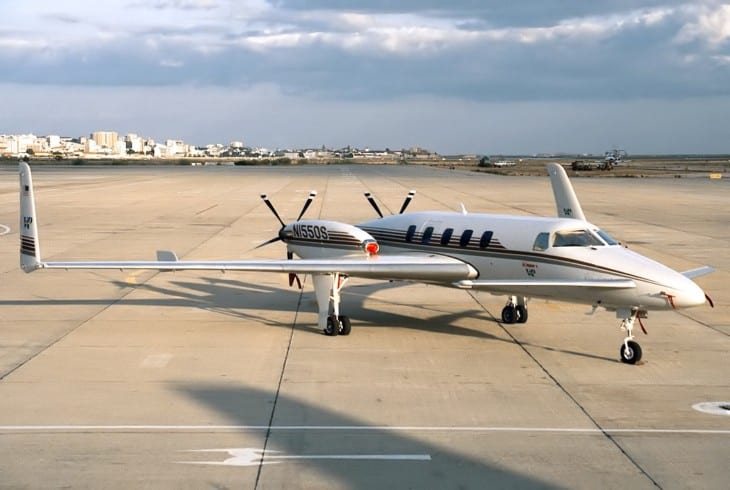
Considering development began as an upgraded, improved successor to the King Air line of crafts from Beechcraft (of which the 350i is a part), it is unsurprising that the Beechcraft Starship 2000A is in many ways superior to previous offerings from Beechcraft.
The Starship 2000 was produced as an executive transport craft for business executives and other wealthy clients, and they are still currently in use. Although this plane was made in greater quantities, only six Starships are registered with the FAA as usable aircraft. One of these registered planes actually served as a chase plane for SpaceShipOne in 2004.
The Starship featured design elements such as a carbon-fiber airframe and pusher propellers, and as expected from its spot on this list, the Starship is very fast. Capable of seating 1-2 crew and up to 6 passengers, the Starship 2000A is capable of speeds up to 335 knots (385 mph)
3. Bombardier DHC-8 Q400 (414 mph)
Top speed: 360 knots/414 mph
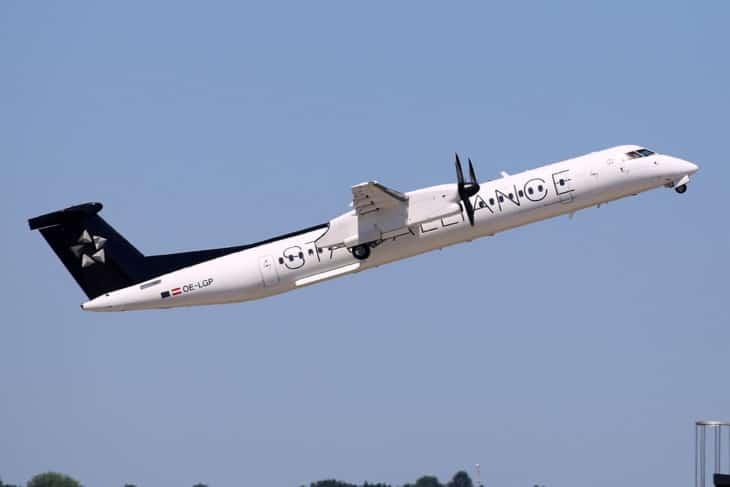
Moving up to the number two spot on this list, we return to the domain of relative giants, this time in the form of the De Havilland Canada (DHC)-8. The DHC-8, also known as the Bombardier Q400 is a shorter distance passenger plane operated by smaller local airlines. Variants allowed between 68 and 80 passengers.
The DHC-8 is still a staple of modern, short distance air travel, with over 1200 aircraft produced over its almost 40-year production run, which continues to this day. In 2018, however, Bombardier sold the DHC-8 program to Longview Aviation, with production still continuing.
Much of the DHC-8 is relatively mundane in comparison to the private jets previously mentioned. It is, for all intents and purposes, an economy craft designed to make short-haul flights faster and more efficient. The DHC-8 does just that, boasting a top speed of 360 knots (414 mph), meaning passengers get there sooner.
2. Piper Cheyenne III 400 LS (414 mph)
Top speed: 360 knots/414 mph (with 5 bladed MT props)
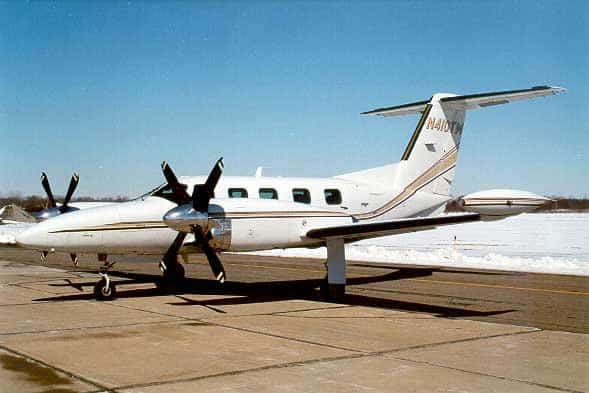
The Piper Cheyenne 400 is a upgraded version of the Cheyenne III developed to be able to compete with the Cessna Citation I without having to develop a completely new airframe.
The PA-42-1000 Cheyenne model has its engines upgraded from the 720 to 1,000 hp. To accommodate the more powerful engines, the empennage was enlarged and the fuselage strengthened.
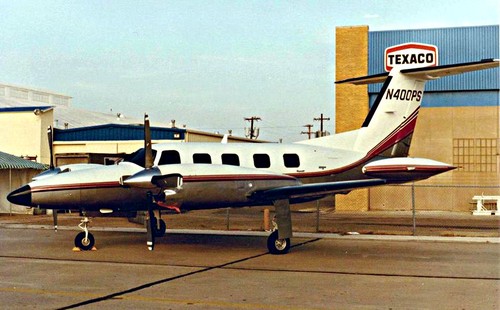
Fitted with the standard 4-blade composite propellers, the Cheyenne 400’s top speed is recorded at 351 knots or 404 mph. Upgrading these to 5-bladed MT propellers allows this twin turboprop to reach a top speed of 360 knots or 414 mph.
The Cheyenne 400 LS set several time-to-climb records in 1985 for its class (C-1e Group 2, 3000m and 9,000m) and two time-to-climb records for all turboprop classes in the hands of retired US Air Force Brigadier General Chuck Yeager.
1. Piaggio P.180 Avanti Evo (462 mph)
Top speed: 402 knots/462 mph
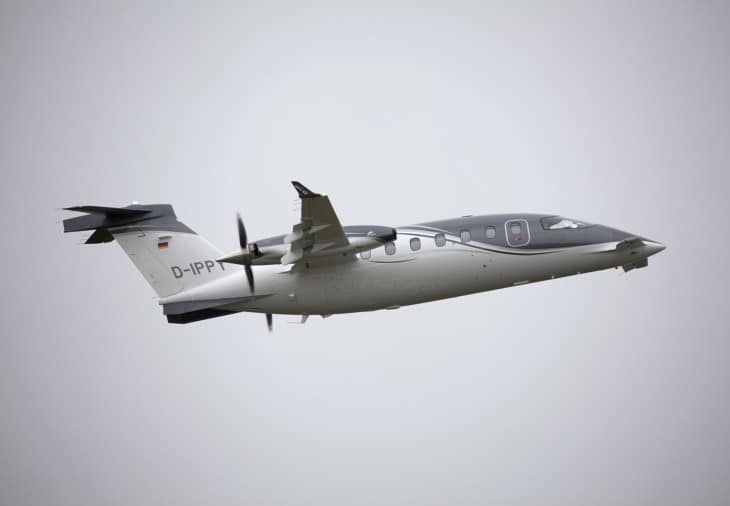
To round out the list of all-time fastest twin-turboprop aircraft, it seems appropriate that we have come full circle back to the small, luxurious crafts aimed at business executives and wealthy clients, this time in the form of the Piaggio P.180 Avanti Evo, an Italian plane built to compete.
The Avanti line has a long and storied history, starting with the collaboration between Gates Learjet and Piaggio. This line of aircraft was in direct competition with the Beechcraft Starship line mentioned earlier too. Nonetheless, in at least one category the Avanti crushed the competition: raw airspeed.
Powered by two Pratt and Whitney Canada turboprops creating a combined 1700 shaft horsepower, the Avanti Evo has a top speed of 402 knots (462 mph), making it officially the fastest civilian turboprop in production, and earning it the coveted number one spot on this list.
Related Posts
